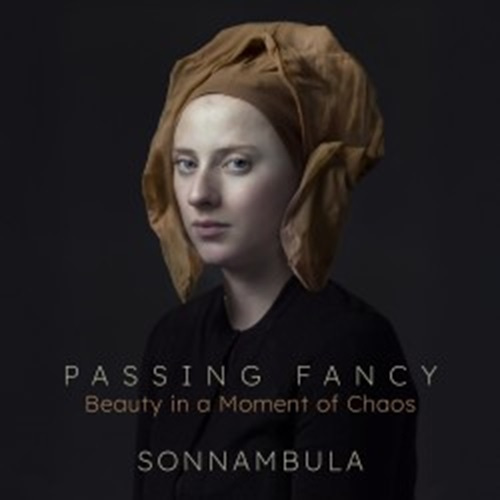Sonnambula - Passing Fancy: Beauty in a Moment of Chaos
(Avie Records, 2025)
The “classical” music catalog (universally speaking) is so vast that it is difficult to find period music that is truly underserved by the recording industry. After exhausting the major composers, the recording industry has addressed the friends and colleagues of those major composers, who did not otherwise enjoy their same popularity, amply.
This begs the question, “Where can one find new old musical masters to address?”
“Scholarship,” that’s where.
Sonnambula is a New York City-based early music ensemble whose artistic director is violist Dr. Elizabeth Weinfield. The ensemble is a quintet of period masters composed of Weinfield, her husband, violinist Jude Liliak, violinist Toma Iliev, organist and harpsichordist James Kennerley, and violist Amy Domingues. All the members hold multiple appointments at several prominent early music orchestras.
A musicologist, Dr. Weinfield, is part of the music history department at the Juilliard School. Wearing many professional hats, she also acts as an independent performance curator, taking advantage of her well-studied understanding of the technique and history of old music to deconstruct and reimagine its artistic possibilities in the present, blurring the interface between the historic and the willing suspension of disbelief.
Dr. Weinfield holds a PhD in historical musicology from the Graduate Center of the City University of New York, awarded in 2019. Her dissertation addressed the music of Baroque composer Leonora Duarte (1610–1678), a Portuguese converso (a Catholic converted from Judaism to avoid persecution in medieval Spain or Portugal) who lived in Antwerp. This is where the “scholarship” comes in. Duarte is one of the current and future projects of Sonnambula, the first recording of Duarte’s music for Centaur Records, Leonora Duarte: The Complete Recordings (2019).
Passing Fancy: Beauty in a Moment of Chaos, the group’s debut recording on Avie Records, pushes the thematic envelope to this necessary specificity. The recording features several Renaissance composers who had to hide their identities for social, religious, or ethnic reasons to avoid persecution. The low-hanging examples are Catholics William Byrd and Richard Dering, who were music-making in jolly old Protestant England. Byrd and Dering contribute two compositions each to this collection. Harpsichordist Kennerley’s Byrd’s “The Bells” (BK 38) and “My Lady Nevell’s Ground” (BK 57) expertly crisp and dry. The group performs Dering’s selections, “Fantasia No. 6 (a5)” (VdGS No. 2) and “Fantasia No. 4 (a 5)” (VdGS No. 1) in a consort style emphasizing the composer’s carefully constructed melodic lines.
Weinfield represents her subject, Leonora Duart, with the composer’s “Sinfonia No. 4,” “Sinfonia No. 5” and “Sinfonia No. 7,” this last in keyboard transcription by Kennerley. All reveal a compelling pathos as an undercurrent to the performances. Élisabeth Jacquet de La Guerre’s boisterous consort reading of “Overture to Céphale et Procris (1694)” introduces this recital in grand manner while overlapping historically with Daniel-Ben Pienaar’s performances on Gaspard Le Roux: Complete Suites (Avie Records, 2025) setting the stage and expectations for this fine collection of rarely performed material. Warmly recommended.




Indeed!